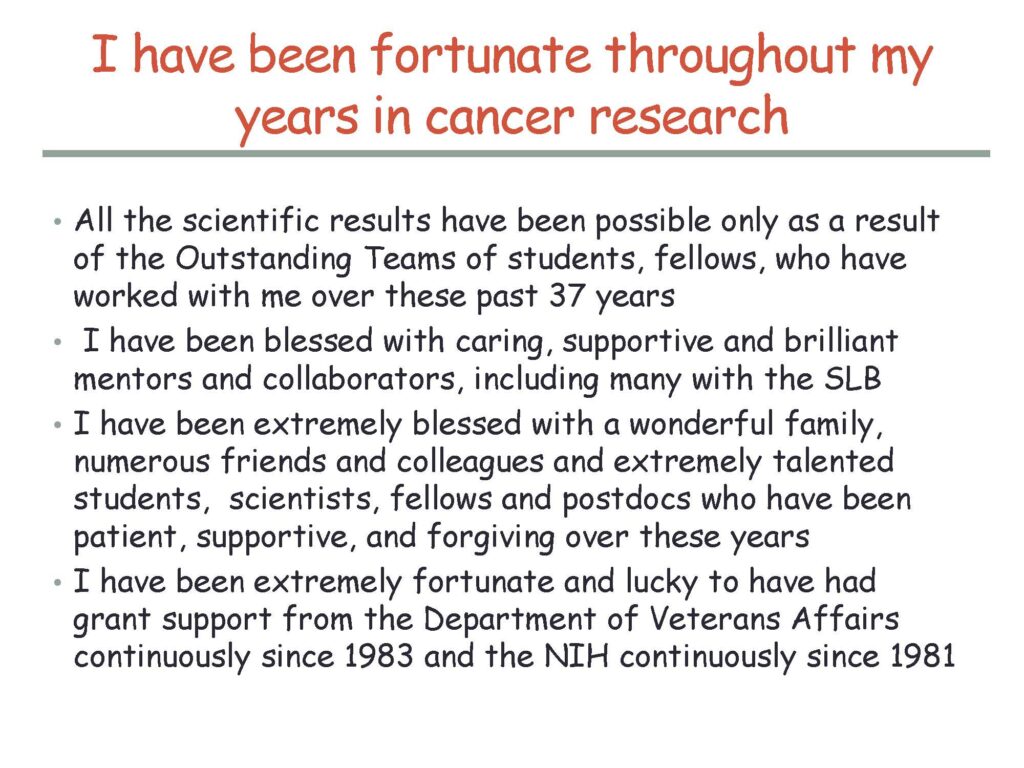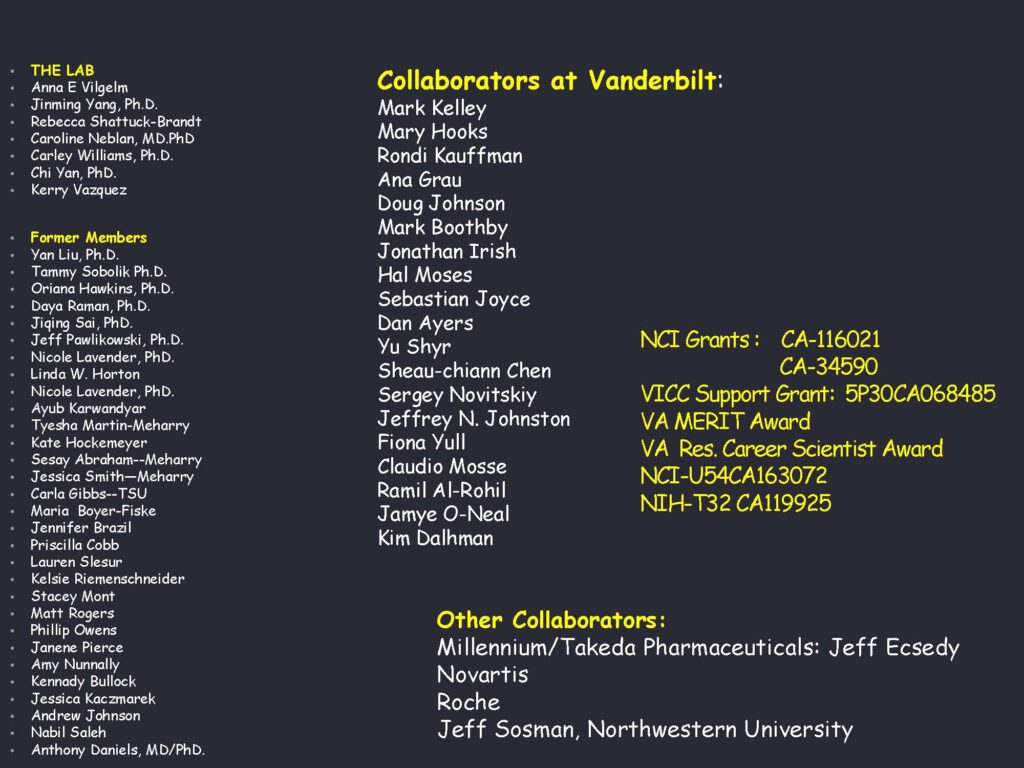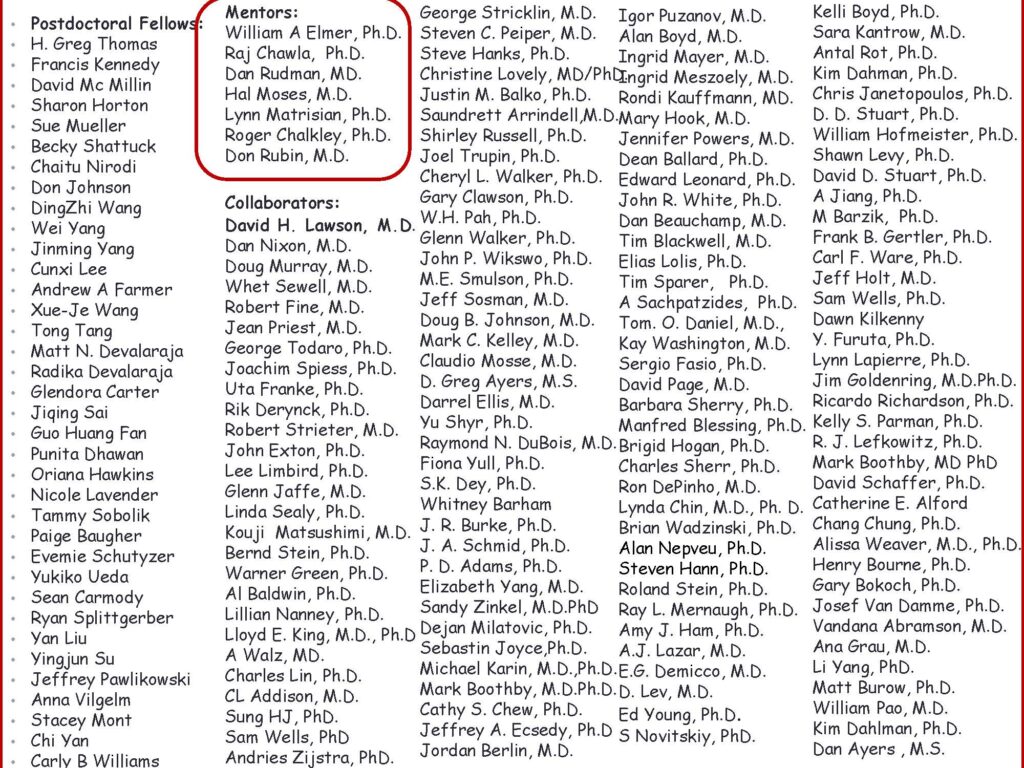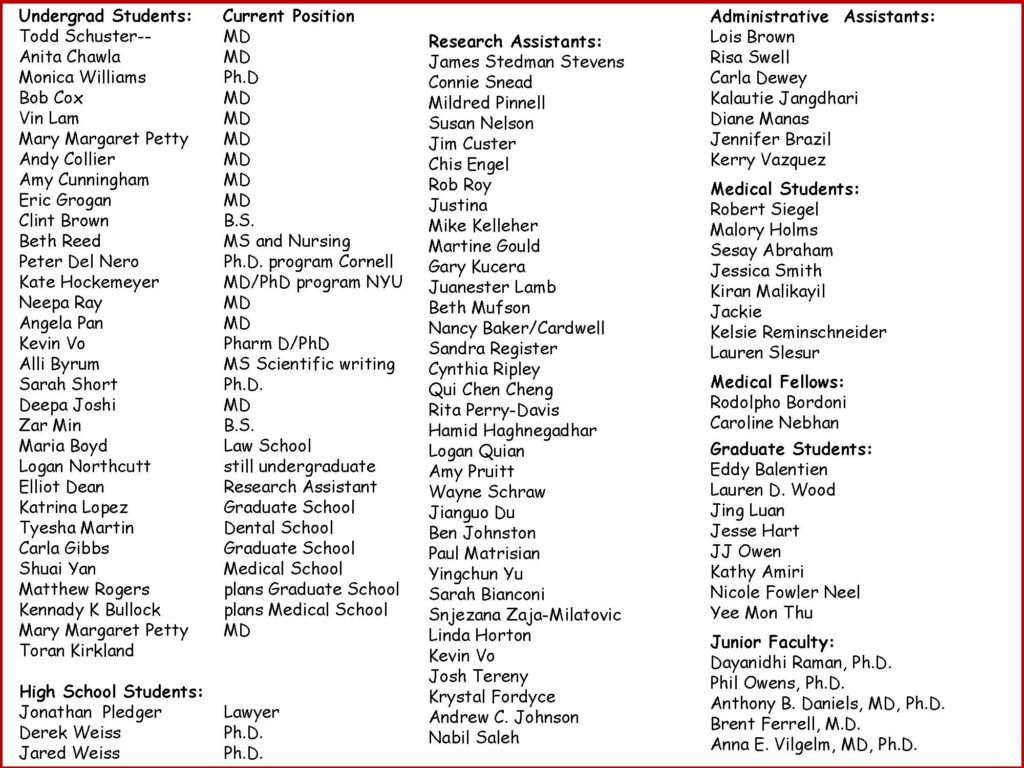Grant Funding and Collaboration

CURRENT FUNDING:
5 U54CA163072 (Pal, PI, Richmond, co-PI) 09/23/2011-08/31/2021
NIH/NCI
MMC, VICC & TSU Partners in Eliminating Cancer Disparities
Over the past few years, due to strong senior faculty leadership at both institutions, a structure for a partnership between Meharry Medical College and the Vanderbilt-Ingram Cancer Center is proposed. This application will provide a firm foundation for a formal Meharry/VICC/TSU partnership. Renewal Submitted 1-2021. Score is fundable and will be renewed 09/01/2021-8/31/2026.
IK6BX005225 VA Senior Career Scientist Award (Richmond) 2020-2027 VA
Salary and fringe for Dr. Richmond
VA Merit Award 101BX002301 (Richmond, PI), 2022-2025
Department of Veterans Affairs
“Modeling New Therapeutic Approaches for Malignant Melanoma”
The goals of this grant are 1) To determine the mechanism by which RGS induces expression of CD40 on tumor cells and to characterize the role of tumor cell CD40 in restoring response to ICI in immunocompetent mouse models of melanoma. 2) To evaluate whether addition of a CD40 agonist antibody will enhance sensitivity of melanoma tumors to RGS + ICI and define mechanisms of response using mouse models and human organoid co-culture systems. Tumoral, immune, and transcriptome changes will be evaluated through multicolor flow cytometry and single cell(sc) RNAseq analysis to provide mechanistic insight on how this combined therapy modulates response to therapy. 3) To determine whether RGS combined with a CXCR1/2 antagonist, can re-sensitize melanoma tumors to ICI therapy using similar approaches as for Aim 2. Significance: These studies will result in new therapeutic approaches to improve treatment of metastatic melanoma in our Veterans by enhancing response to ICI therapies or re-sensitizing ICI-resistant tumors to treatment with ICI.
CA243326 A1-01 (PI Richmond) 09/01/2019-8/31/2024
NIH/NCI:
Optimizing Response to Immune Checkpoint Inhibitor Therapy for Breast Cancer:
A Role for Inhibitors of the PI3K pathway
This proposal seeks to develop new combinations of treatment for patients with breast cancers. We will determine whether drugs that alter the tumor immune microenvironment can be used to make tumors that do not respond to immune checkpoint inhibitors responsive. If successful, these combined treatments will prolong the survival of breast cancer patient.
CA116021 (PI Richmond) 04/01/2020-03/31/2025
NIH/NCI
“New Strategies for Treatment of NRAS Mutant Melanoma after Progression on Immune Checkpoint Inhibitors”. The goals of this grant are to evaluate targeted therapies in combination with immune checkpoint inhibitors using mouse models, humanized PDX melanoma tumor models, and organoid co-culture models.
1U01TR002383-01 (Wikswo) 02/01/2018-01/31/2023
.60 calendar months
NIH
Harnessing human brain and liver micro physiological systems for testing therapeutics for metastatic melanoma
This project will study how the tissue microenvironment affects the growth of metastatic melanoma cells and their response to drugs by using the Vanderbilt neurovascular unit tissue chip, the Pittsburgh liver-on-chip, and the Wisconsin engineered organoids for brain and liver, each of which includes multiple cell types.
1R37CA233770-01 (PI: Vilgelm) NIH/NCI 09/01/2018-08/31/2023
Combining senescence-inducing and senolytic agents to improve melanoma therapy. The specific aims of this project are 1) evaluate anti-melanoma efficacy of senescent-inducing and senolytic therapy, 2) define mechanisms of innate immune activation by senescent-inducing and senolytic therapy and 3) determine if senescent-inducing and senolytic therapy sensitizes melanoma to ICIs.
Role: Co-Investigator
COLLABORATION


